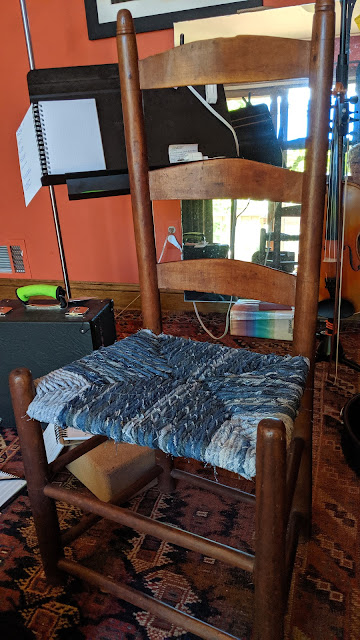I Can
Of the four principles of Kokikai Aikido, the one I have most difficulty explaining is Positive Mind. It's hard to grasp how changing your mind can affect your physical ability. Scientists concluded way back in the 19th century that the structure of the brain is fixed after childhood, and the idea is so normative in our culture that we don't even realize it's a belief; it's just the way it is. As an instructor I'm aware that I risk my students thinking of me as a flaky New Age thinker by proposing Positive Mind as an essential part of our practice.
It is helpful when I can back up my assertions with scientific results.
Recently in a class at the YWCA Princeton, Maruyama Sensei said that thinking "I Can" has a physical effect on the brain, helping make your brain more organized. He may have been referring to a recent study from a group of Japanese researchers showing that praise following motor training directly facilitates the consolidation of skills. This would seem to apply directly to our practice of aikido, in which we undergo physical training to increase skill. If praise (from someone else or from yourself) helps increase your ability, why not take advantage of it?
In recent years the notion of neuroplasticity of the brain has gained increasing acceptance among neuroscientists, particularly as it became possible to study real time changes in the brain using FMRI. Neuroplasticity encompasses the idea that our thoughts and behavior change the structure and function of our brains, and that this happens continually, throughout our lives.
Science provides a relatively objective method for learning about the effects of Positive Mind. But we don't rule out subjective experimentation. In other words: try it and decide for yourself. As instructors, keep reminding your students of the importance of Positive Mind. Ki tests are a perfect way to experiment, practicing first with negative mind, and then with positive mind, using the same person under the same circumstances, with only one change: different thoughts.
You can come to your own conclusion as to whether Positive Mind makes you more effective. Speaking for myself, I will say yes.
Related Posts
Four Basic Principles for Living
Positive Mind
It is helpful when I can back up my assertions with scientific results.
Recently in a class at the YWCA Princeton, Maruyama Sensei said that thinking "I Can" has a physical effect on the brain, helping make your brain more organized. He may have been referring to a recent study from a group of Japanese researchers showing that praise following motor training directly facilitates the consolidation of skills. This would seem to apply directly to our practice of aikido, in which we undergo physical training to increase skill. If praise (from someone else or from yourself) helps increase your ability, why not take advantage of it?
In recent years the notion of neuroplasticity of the brain has gained increasing acceptance among neuroscientists, particularly as it became possible to study real time changes in the brain using FMRI. Neuroplasticity encompasses the idea that our thoughts and behavior change the structure and function of our brains, and that this happens continually, throughout our lives.
Science provides a relatively objective method for learning about the effects of Positive Mind. But we don't rule out subjective experimentation. In other words: try it and decide for yourself. As instructors, keep reminding your students of the importance of Positive Mind. Ki tests are a perfect way to experiment, practicing first with negative mind, and then with positive mind, using the same person under the same circumstances, with only one change: different thoughts.
You can come to your own conclusion as to whether Positive Mind makes you more effective. Speaking for myself, I will say yes.
Related Posts
Four Basic Principles for Living
Positive Mind




Comments
Post a Comment